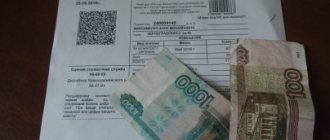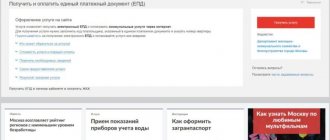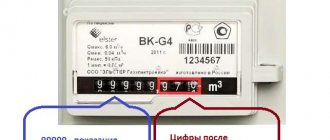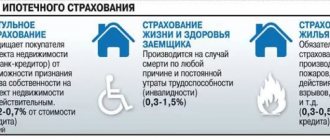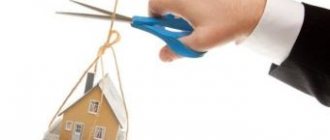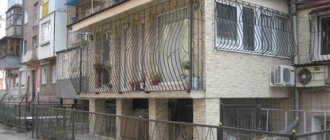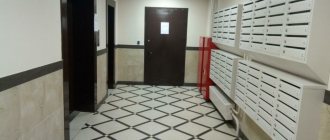President of the Federation of Migrants: “You don’t need to pay for a patent until June 15”
The Decree states that for the period from March 15 to June 15, 2020, the terms of patents that expire during this period are suspended.
After the publication of the Decree, the Federation of Migrants published several videos in which they categorically stated that no one needs to pay for a patent in the period from March 15 to June 15.
Federation President Vadim Kozhenov in the video refers to another document - methodological instructions prepared by the Ministry of Internal Affairs. He noted that this document is intended for internal use, its number according to EDMS is 1/4333. And this document says that there is no need to make advance payments until June 15.
What taxes should children pay?
Most often, you need to pay personal income tax for children. It must be paid in all situations if the child has income.
Children may own apartments, land plots, cars and other property. In such situations, it becomes necessary to pay other taxes: property, transport, land.
People often ask whether children are entitled to any tax benefits. According to the general rule, such benefits do not exist, i.e. children represent ordinary taxpayers.
However, situations may be different in different regions. Therefore, the issue of tax benefits for children should be considered taking into account local and regional specifics of legislation.
Lawyers: “You need to pay for a patent”
Lawyers have a different opinion. For example, lawyer Dmitry Yaroshenko recorded a video in which he noted that from a legal point of view, the document can be understood as follows:
- if the patent expires between March 15 and June 15, then until June 15 you can continue to work without a patent. There is no need to pay for it.
- if the patent expires after June 15 , then you need to continue to pay for the document and renew it, otherwise it will be cancelled. That is, if the patent expires, for example, on June 16, then it must continue to be paid.
The same position is shared by lawyer Roman Stepanov .
— If the patent does not expire from March 15 to June 15, then it must be paid as usual. If this is not done, the patent will be considered invalid, which will entail the need to subsequently obtain a new patent, the lawyer noted in a publication on his Facebook page.
At the same time, the lawyer admits that so far the situation with payment for the patent is very controversial and clarifications from the Ministry of Internal Affairs are needed.
Do children need to pay taxes?
According to Article 57 of the Constitution of the Russian Federation, all citizens are required to pay taxes and fees established by law. Therefore, if a Russian citizen under 18 years of age who is not registered as an individual entrepreneur receives income (this is possible upon emancipation), he must pay personal income tax.
Moreover, even an infant may be required to pay tax, provided that he or she receives any taxable income or property.
In such cases, the law regulates the obligation of parents to carry out on behalf of their children all legal procedures provided for by law regarding property belonging to their children, including transactions with it. At the same time, parents are required to pay appropriate taxes for their children.
The Constitutional Court's ruling No. 25-О-О dated January 27, 2011 clarifies that the provisions of Chapter 23 of the Tax Code are equally applicable to all citizens of Russia, regardless of their age.
Previously, the provisions of the Tax Code prescribed exclusively personal payment of taxes. This caused a number of controversies, incl. regarding minors. However, since 2020 the situation has changed. Today, any other person can pay taxes for a taxpayer.
What do they say at the Ministry of Internal Affairs?
The Ministry of Internal Affairs has not yet given any official explanation regarding the issue of paying for a patent. The department published an interview with the head of the Main Directorate for Migration of the Ministry of Internal Affairs, Valentina Kazakova, in which she comments on Putin’s Decree. But here, too, the issue of paying for the patent was not raised.
There are many messages on social networks from foreign citizens who called the departments of the Ministry of Internal Affairs of different regions and received an answer that they needed to pay for a patent.
Screenshot from the social network VK
Screenshot from VK
Screenshot from VK
Do I need to pay contributions for major repairs in new houses?
Almost every owner of an apartment in a new building is concerned with the question: do I need to pay a fee for major repairs? It all depends on the region in which the building is located.
Attention
The possibility of obtaining a deferment is provided for in clause 5.1. Art. 170 LCD. The norm states that contributions for major repairs in new buildings may not be collected for a period determined by the regional program, but not more than 5 years.
Housing legislation relieves citizens of the obligation to make payments for major home repairs in the following cases:
- the accident rate and the need for demolition of a residential building, officially recognized (Article 169, Part 2);
- adoption by apartment owners of a decision to save funds for repairs in a special account (Article 170, Part 8);
- seizure by the state of a real estate property and the lands on which it is located.
The occurrence of circumstances does not exempt citizens from paying off accumulated debts. The Housing Code completely or partially removes the obligation to pay for capital repairs from certain categories of persons, but owners of apartments in new buildings who do not have additional privileges do not apply to them.
Features of charging for an elevator
As Part 1 of Article 36 of the Housing Code of the Russian Federation states, elevators, as well as elevator and other shafts, electrical and mechanical equipment located in the house, belong to the category of common property. Owners, tenants and tenants transfer money for its maintenance on a monthly basis. The cost item is usually called “Repair of residential premises”.
According to regulations (Article 249 of the Civil Code of the Russian Federation, Articles 37 and 158 of the Housing Code of the Russian Federation), all participants in shared ownership are required to bear costs related to the maintenance of common property in amounts proportional to their shares. In a specific case, we are talking about the area of the apartments, from which the payment for the repair of elevator systems and other services of public utilities is calculated.
So living on one floor or another does not matter here. The law clearly states: it is not the one who uses the elevator or stairs more often who should pay more, but the one who has more square meters of housing
Taxation of impersonal metal accounts
What is an impersonal metal account and what are they?
So, a brief background. An unallocated metal account (UMA) is a bank account in which your savings are accounted for in grams of metal, and not in rubles or other currency. Compulsory medical insurance can be opened in four different metals - gold, silver, platinum and palladium, with an amount ranging from several thousand rubles to 100 thousand rubles. and more. The procedure for opening a compulsory medical insurance is very similar to simply opening a deposit.
Like a deposit, compulsory medical insurance can be urgent and on demand. A term account implies a limited period and payment of interest, while a demand account implies the ability to withdraw money at any time, but does not require the payment of interest. More often, investors choose compulsory medical insurance on demand in order to be able to withdraw funds at any time.
When you want to close the compulsory medical insurance, you can choose whether to receive funds in the form of money, or to withdraw funds from the account in the form of bullions of the metal in which you have an account, but at the same time pay 18% VAT (this is why investors mainly choose the first option). However, if you initially contributed not cash to compulsory health insurance, but bullion, then when you withdraw the bullion, VAT is no longer applied.
Everything would be fine with regard to such an instrument as compulsory medical insurance, but there is one “BUT”: it is not covered by the deposit insurance system, so if the bank’s license is revoked, you may lose all your savings for compulsory medical insurance. Accordingly, if you become an adherent of this type of investment, you need to choose the most reliable banks that have long proven themselves in the market.
Do I need to pay taxes?
So, when investing in compulsory medical insurance, we may have 2 types of income:
- Interest that the bank charges in the form of grams of metal
- The profit you get by selling impersonal grams of metal back to the bank (i.e. withdrawing money from compulsory health insurance) is due to the increase in the cost of 1 gram of precious metal
Interestingly, the taxation of the two types of income differs significantly. So, more details.
According to Letter of the Ministry of Finance of the Russian Federation dated February 13, 2009 N 03-04-06-01/31, taxpayer income in the form of interest on compulsory medical insurance is subject to taxation on personal income tax at the rate provided for in paragraph 1 of Art. 224 of the Tax Code of the Russian Federation (13% for tax residents). Those. Compulsory medical insurance is not equivalent to a bank deposit and interest on compulsory medical insurance is subject to full tax. In this case, according to the same Letter, when paying income to a taxpayer in the form of interest on compulsory medical insurance, the bank is a tax agent and is obliged to calculate, withhold from the taxpayer and pay the amount of personal income tax. Those. you do not have to calculate the tax and file a return yourself.
Another thing is with the income from the increase in price per 1 gram of metal. In accordance with Letter of the Ministry of Finance of the Russian Federation dated February 13, 2009 N 03-04-06-01/30, in the event of a taxpayer’s sale to a bank of precious metals listed on an impersonal metal account opened with this bank, by completing a purchase and sale transaction, the bank does not recognized as a tax agent. In this case, the calculation and payment of tax are carried out by the taxpayer independently on the basis of a tax return submitted to the tax authority at the end of the tax period.
Let's say you deposited 100 rubles. for compulsory medical insurance, buying 100 grams of gold for 1 rub. for 1 gram, and a year later, 1 gram of gold has risen in price to 2 rubles, and you have 100 grams of gold on compulsory medical insurance, as before, but their cost is now 200 rubles. If you decide to take profit and withdraw money from compulsory medical insurance, Formally, this will mean that you sell impersonal grams of metal to the bank, and the bank gives you money for them that is equivalent to the cost of the sold grams on the day of sale. Let's say you sell all 100 grams and receive 200 rubles. In total, your profit will be 100 rubles. (you bought grams of metal for 100 rubles and sold them for 200 rubles). So, in accordance with Letter of the Ministry of Finance of the Russian Federation dated February 13, 2009 N 03-04-06-01/30, you will have to submit a declaration of income received in the amount of 100 rubles by April 30 of the year following the year in which you received income. The declaration will indicate income and calculate tax (13% of income, i.e. in our case, 13 rubles). And then you will have to pay this independently calculated tax, as expected, by July 15 of the year in which you submit the declaration. The bank will not withhold tax on income from increases in precious metal prices, because is not a tax agent.
So, let's summarize. Depending on what income you received for compulsory medical insurance, you calculate and pay the tax either yourself (in the case of income from an increase in metal prices, when selling metal), or the bank does this for you (in the case of accruing interest under compulsory medical insurance). . However, in fact, now few banks charge interest on compulsory medical insurance, so you will most likely only encounter income from an increase in metal prices. This means that you will have to calculate and pay taxes yourself. Well, or with the help of an independent financial advisor who will draw up a declaration and calculate the amount of tax to be paid.
Natalya Smirnova,
CEO
13/10/2011
Consequences of non-payment
The home owner is obliged to pay for the benefits of civilization no later than the 10th day of the month following the one in which the services were provided. The formation of the capital repair fund is included in the main receipt and is subject to payment in a similar manner.
Ignoring requirements may result in the following penalties:
- debt on contributions for major repairs up to 2 months is punishable by a penalty calculated in accordance with the norms of Part 14.1 of Art. 155 Housing Code of the Russian Federation;
- a delay of more than 6 months may result in a court decision, according to which the defaulter is obliged not only to repay the debt, but also to pay a penalty, a fine and the costs incurred;
- in case of failure to comply with the requirements of the servants of Themis, bailiffs intervene in the situation, whose powers allow them to: seize money accounts or property, prohibit the defaulter from leaving the Motherland, etc.
The law does not allow depriving a defaulter of his only real estate.
Owners of apartments in buildings that have just been put into operation must also save for future capital work, with the exception of: the period of deferment, the recognition of the building as unsafe, or the seizure of land and premises into state ownership.
So is it necessary to pay for major repairs in a new building?
Yes, it is necessary - even if the house was recently completed and is in excellent condition, residents are still required to pay contributions to the Capital Repair Fund. This is directly stated in the Housing Code of the Russian Federation (Article 158, Article 169).
There is an erroneous statement on the Internet that there is no need to pay fees for major repairs in a new building while the warranty period from the developer is valid. However, according to the law, the mere presence of such a guarantee is in no way connected with payment for major repairs.
The obligation to pay contributions arises immediately after the new building is placed in the queue for major repairs. This happens no later than 8 months from the date of delivery of the house. The process looks something like this: the developer receives permission to commission a residential complex, the municipality includes residential properties in the regional capital repair program, and the fund calculates payments and begins sending receipts. But there are exceptions.
Amount of contributions for major repairs in new buildings
The amount of the contribution for major repairs in new houses directly depends on the procedure for forming this fund.
| Who is raising funds | Amount of payment |
| Residents of apartment buildings on a special account |
|
| Regional operator | Stipulated in a regulatory act adopted by a constituent entity of the Russian Federation. |
The amount of payment may vary depending on the condition of housing in the region. The municipal government sets the minimum rate for 1 m2 of housing, and the final size is determined based on:
- room area;
- type of structure.
For example, if the fee for 1 sq. m. in the region is 6 rubles, then for 60 sq. m. the owner of the apartment must pay 360 rubles monthly.
Who pays?
The fee for the service is borne by the apartment owners . But not all homes are owned by consumers. Some of them are tenants.
If the owner lives in the apartment
The work is paid for by the owners of the apartments in which flow meters are installed.
The devices are the property of the apartment residents. They are responsible for their safety. They are responsible for ensuring compliance with the flowmeter verification deadlines.
If the property is for rent
If the home is municipal, then the consumer has the right to demand payment for the work from the municipality.
It is the latter who acts as the owner of such an apartment, and he must bear the costs of calibrating the metering devices.
The tenant of a municipal apartment is only a tenant . If the tenant of such an apartment paid for the service with his own funds, then he has the right to demand reimbursement from the municipality. If he refuses this request, the consumer has the right to appeal to a judicial authority.
The same rule applies to apartment tenants. Landlords, who act as direct owners, must pay for verification of water meters. Tenants are not required to pay for this work.
